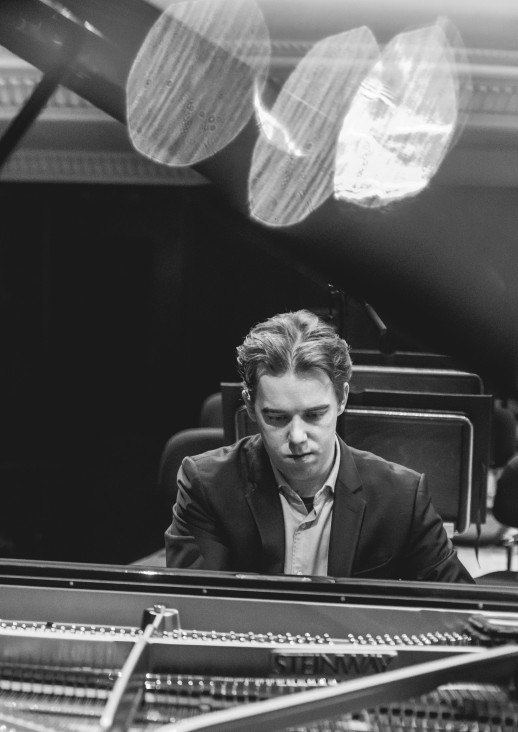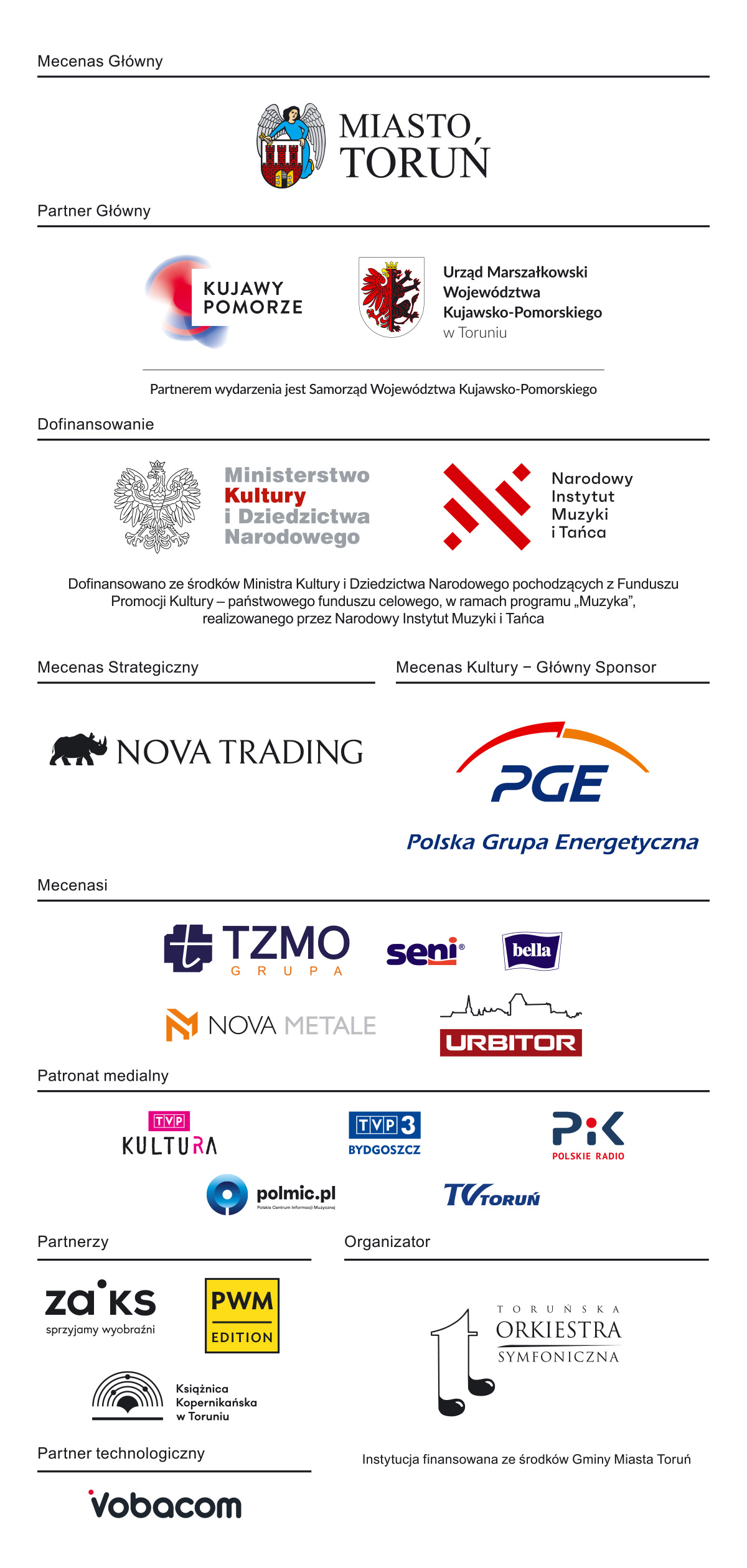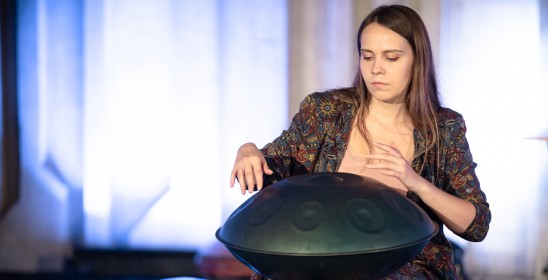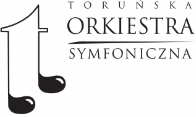SEROCKI #100 PIANO
Koncert odbędzie się w ramach projektu SEROCKI #100
Performers:
Ingolf Wunder - piano
Zygmunt Krauze - piano
Adam Banaszak - conductor
Toruń Symphony Orchestra
Karol Furtak - lecturer
In the program:
W. Kilar - Second Piano Concerto
Z. Krauze - Piano Concerto No. 3 - ‘Fragments of Memory’
K. Serocki - Romantic Concerto for Piano and Orchestra
Wydawcą utworów Kazimierza Serockiego jest Polskie Wydawnictwo Muzyczne
fot. Bartek Sadowski
As part of this concert, the Toruń Symphony Orchestra will once again be conducted by Adam Banaszak, its first guest conductor, and the stage in the CKK Jordanki Concert Hall will also feature two pianists: Ingolf Wunder, winner of the second prize in the 2010 Chopin Competition, and Zygmunt Krauze, composer, concert pianist and pioneer of new solutions in Polish music, including musical installations or his own concept of unistic music inspired by the paintings of Władysław Strzemiński. For many years, Krauze performed the works of Kazimierz Serocki, including performances with his ensemble Warsztat Muzyczny, which promoted the work of Polish composers of contemporary music from the late 1960s onwards.
Summing up the planned concert, one word could be used: the clash. First and foremost, it will be a clash of artistic personalities, extremely different from each other, but just as highly individual. On the other hand, however, the program, consisting of three piano concertos representing individual styles and aesthetics far from each other, will show the diversity of this genre in Polish musical literature from the times of oppression of Polish culture through the corset of 'socialist realism' to compositions created in recent years, at a time when musical creativity is basically limited only by the composer's imagination. At this point, however, it must be emphasised that the compositions of Wojciech Kilar and Zygmunt Krauze are today at the forefront of a short list of those works which are being actively employed in current concert activity.
Let us begin, however, with Serocki’s concerto, in the context of which the idea of combining Romantic expression with neo-classical formal assumptions characteristic of the musical culture of the time recurs. This work was shrouded in controversy. Firstly, from the point of view of the author of these words, one cannot agree at all with the opinion of Zofia Lissa, who did not find the emotional and ideological content in this work, as cited by Iwona Lindstedt. The Romantic trait can be seen here in a convention, which is admittedly very indefinite and alludes to the 19th-century understanding of music as a fantastic language, but which gives the performers a wide range of interpretative possibilities. The echoes of various chapters of 19th-century European musical history that can be heard in the melody, harmonics and phrase shaping, not excluding, of course, Chopin's oeuvre, are not limited solely to virtuosity. They fit into the concept of the genre of the piano concerto as absolute music, at the same time attesting to the current pre-1956 problems of Polish musical culture. In this respect, it is worth pointing out, for example, the numerous references to folklore that clearly emerge from the concerto's score. Serocki himself withdrew his work, but today interest in this composition is returning - as evidenced by a disc performed by Adam Wodnicki and the Polish Radio National Symphony Orchestra under Tadeusz Wojciechowski.
A few more words about the concertos by Kilar and Krauze.... The expression of both of them goes beyond the concept of absolute music in perception, but this is due to completely different reasons in the case of both authors. Although Kilar declared that his music does not carry extra-musical content, revealing that the Second Piano Concerto was written during the composer's reflection on the 2010 Smolensk catastrophe and the clear references to church music and native folklore, characteristic of this author's minimalist compositional language, trigger a completely different aesthetic experience in the audience. On the other hand, Zygmunt Krauze's ‘Fragments of Memory’ is intended, according to the composer himself, to be an overt expression of discontent with the realities of the contemporary world, full of injustice and inequality between people, as is the case on every continent, in every country's villages and towns; to express pain, yet without aggression, and hope that good times will come. In Piano Concerto No. 3, Zygmunt Krauze referred to the performative aspect in order to make it more comprehensible to the public.
Karol Furtak









